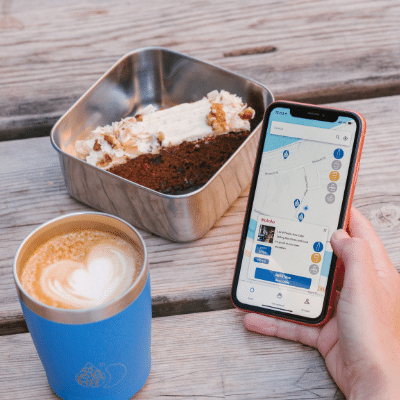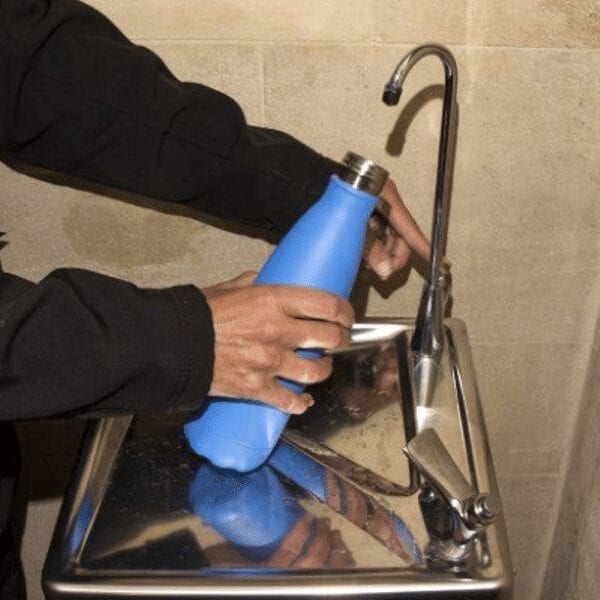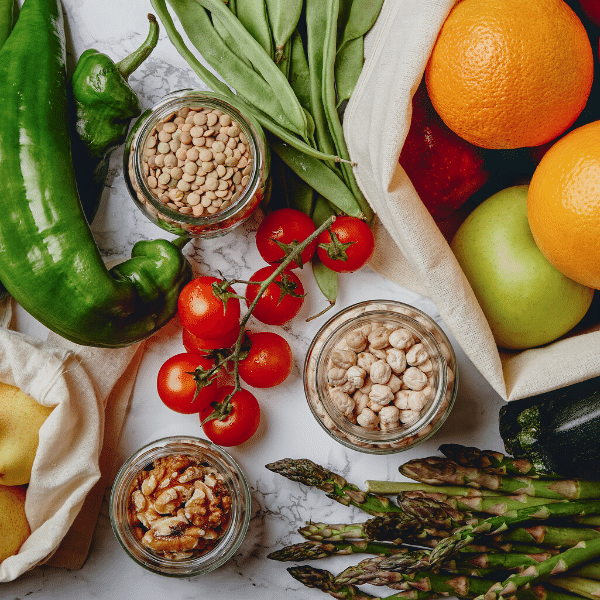How to refill at work
Refilling on the go ist easier than ever, here are our tips to bring the Refill Revolution to the workplace!
You and your colleagues can use the Refill app to discover not only where to refill your water bottles, but also your coffee cups, lunchboxes, groceries and even cleaning products. It also tells you about discounts available for using a refillable coffee cup, places that are happy to refill your own lunchbox, venues selling plastic-free fruit and vegetables, and refill sites for all other groceries, household goods and toiletries.
Here are a few tips to help you and your colleagues get the maximum benefit from the Refill app and keep plastic use to a minimum.

Encourage colleagues and friends to download the Refill app
Ask around to see whether everyone in your team or department has downloaded the app. There are now more than 30,000 Refill Stations in the UK alone – including railway stations, airports and high street chains such as Costa and Starbucks. Once someone’s got the app, encourage them to carry a refillable bottle to take full advantage of all that free water.
Find your nearest zero-waste shop
They’re popping up all over the country, and they let you refill all kinds of household necessities, including flour, sugar, pasta, tea, coffee, toiletries and cleaning products. You can also pick up items like loo roll without the usual packaging.

Carry reusable cups and containers
If you’re likely to need water, hot drinks or food on the go, make sure you’re equipped to refuse plastic containers or cutlery. Keep refillable water bottles and coffee cups in your bag, plus reusable cutlery, straws and hygienic containers. We’re not saying you should be loaded down with kit all the time, but if you’re going to be out most of the day, or know you’ll have to stop at motorway services, be prepared. We have links with Chilly’s water bottles and Huskup coffee cups to get you started.
The same goes for shopping – carry a reusable tote to ensure you won’t need to request a plastic carrier bag.
Do a ‘plastic audit’ – at home and at work
Look around your kitchen and the office kitchen or canteen to see what ends up in the bin each day. Where could you upgrade to reusable options? Could you reduce plastic pollution by carrying refillable cups and washable cutlery? There are plenty of reusable options available – visit the Plastic Free Shop for ideas.

Make it easier for work colleagues to start being more plastic aware
Try some of these positive actions:
- Remove the plastic glasses from the water fountain and cups from the coffee machine; then tell HR you no longer want them, so they don’t need to restock.
- Ask your company to make reusable bottles, glasses and cups available to staff and customers.
- Organise plastic-reducing challenges between teams or departments.
Bringing packed lunches to work? Don’t cling film
Beeswax wrap will keep your food just as fresh, and it’s easy to clean with cold soapy water. Get yours here.

Challenge shops and suppliers
- If your local supermarket doesn’t have a plastic-free veg aisle, tell them you want one.
- If you have to buy fruit or veg wrapped in plastic, unwrap it and leave the plastic at the check-out.
- If supplies at your work canteen arrive with excess packaging, encourage the procurement team to complain to suppliers.
A couple of extra ideas with our compliments
If you’re already refilling everything you can think of, why not turn to one of our other City to Sea campaigns for inspiration, and reduce plastic pollution across other aspects of your life. For example, you could:
Say no to plastic toiletries
- When your plastic toothbrush wears out, replace it with a bamboo one – they come in all kinds of styles and firmness.
- Switch from using soaps, shampoos and conditioners in plastic bottles to good old-fashioned bars – they last for ages and work just as well as the runny kind.
- Ditch your throwaway razors and use a steel razor with recyclable blades – here’s one with a smart bamboo handle.
- If you really need to use cotton buds, make sure you #switchthestick and choose ones made of paper.
- Switch to plastic-free period products.
Or resolve to be the best dressed person in your workplace
Synthetic clothes shed microfibres, so always try to buy good quality clothes in natural materials. They may be dearer, but they often last much longer. Alternatively, visit your local charity shops for clothes in natural fibres at bargain prices.


